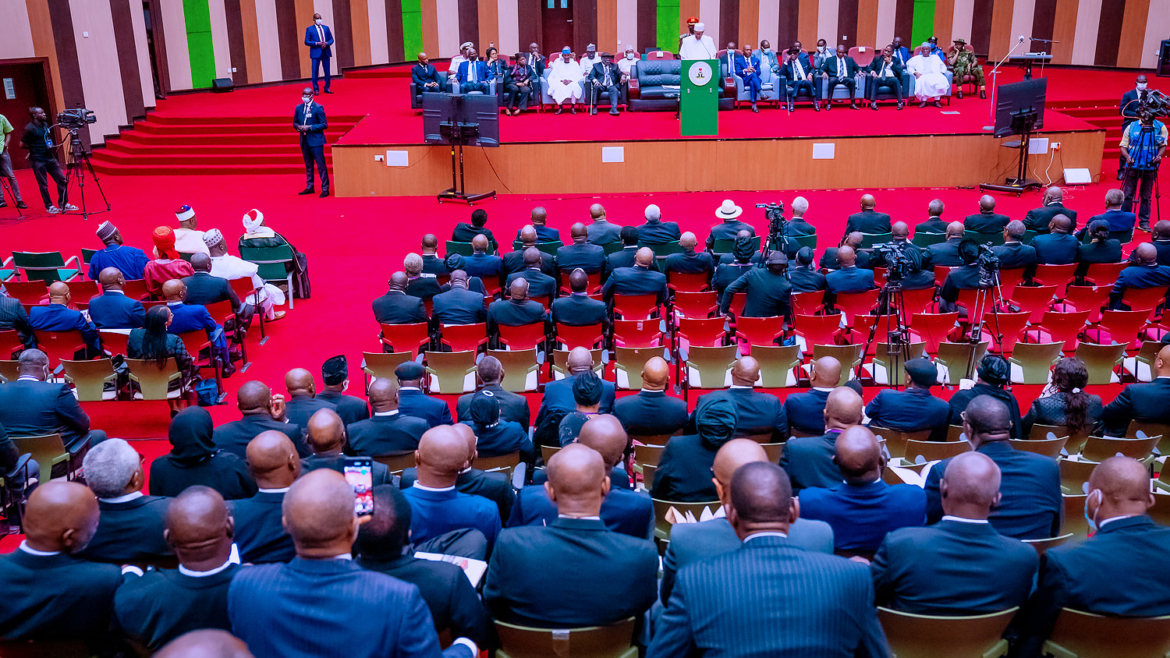Read the first part here.
With all that was said in the first part of this argument, given the NLC’s strong stance, it is plausible that the government will concede to some degree on wage increases for civil servants. That is likely to happen before the end of the month. In typical Nigerian government fashion, only extreme behaviour elicits a serious reaction.
But if we want to break out of this vicious cycle, focusing on ensuring a corresponding rise in productivity becomes crucial and here are two key strategies to consider:
First, we should look at performance-based incentives. Nigeria needs to implement a performance-based pay structure that links a portion of a civil servant’s wage to achieving specific performance targets. This structure should hopefully incentivise efficiency, innovation, and improved service delivery. Clear and measurable performance metrics tailored to different roles within the civil service would be required, and regular performance reviews can track progress and guide adjustments to individual or department-wide goals.
Advertisement
Second, we should initiate and ensure proper skills development and training programmes. The NLC/TUC should demand that the government invest in comprehensive training programmes to equip civil servants with the latest skills and knowledge relevant to their positions. These could include technical skills training, soft skills development workshops, and a leadership training programme. To offer specialised training courses that enhance civil servants’ expertise and qualifications, partnerships with universities or professional organisations should be pursued.
There is also value in considering the introduction of an hourly wage system that allows them to have second jobs. Admittedly, the introduction of an hourly wage system for civil servants would present several challenges not limited to tracking work hours. There is also the potential for abuse if clear guidelines are not established to prevent unauthorised overtime or misuse of flexible work arrangements. If not carefully managed, a focus on billable hours could potentially come at the expense of core job responsibilities. However, there is merit in exploring alternative hourly models that could enhance civil servants’ income potential.
Two things that we should look to introduce and monitor closely are clearly defined and regulated overtime pay, which could incentivise additional work during peak periods without disrupting core functionalities, and project-based bonuses, where rewarding the successful completion of special projects or exceeding targets could motivate extra effort and a results-oriented mindset.
Advertisement
Other drawbacks to be considered are those related to conflicts of interest, so clear guidelines are needed to distinguish between civil service duties and private work. There’s also the issue of effective time management to avoid burnout or neglect of core duties for either gig.
Several civil servant skill sets could be valuable in the gig economy, depending on their specific roles, and the NLC or TUC ought to be at the forefront of pushing their members in these directions. Three that can be focused on include:
- Business development and consulting: Civil servants with experience in trade, investment, or public procurement could offer consulting services to small and medium-sized enterprises (SMEs) navigating the regulatory landscape or seeking government contracts. Their insider knowledge and expertise can be valuable assets for businesses.
- Technical skills and training: In sectors like agriculture or infrastructure development, civil servants with technical expertise in crop cultivation, irrigation systems, or construction could provide training workshops or consultations to private companies or rural communities. This knowledge transfer can boost agricultural yields or improve construction practices.
- Education and literacy programmes: Teachers and curriculum developers could offer online tutoring or design educational materials for private institutions or NGOs working on adult literacy programmes. Their pedagogical skills and understanding of the local curriculum can be valuable assets.
These are just a few examples, and the possibilities can expand based on the specific skill sets and local market demands. By embracing the gig economy strategically, Nigerian civil servants can enhance their professional development, contribute to private sector growth, and improve their overall well-being.
The NLC’s forceful tactics, while highlighting the urgency of addressing civil servant wages, have left many Nigerians feeling trapped in a lose-lose situation. The economic shutdown disproportionately impacted everyday citizens struggling to make ends meet. In my organisation, not a single goal was met on Monday, June 3, as people struggled to meet their targets on a day we had set for them on a work-from-home day.
Advertisement
Finding a solution to the legitimate issues the unions have raised demands a shift from confrontation to collaboration. The government, the NLC, and civil society organisations must come together and commit to a non-violent negotiation culture that aims to create win-win outcomes.
Transparency and a commitment to the national interest are vital. The government should check its reckless spending, and the labour union should accept the need to prioritise streamlining civil service to eliminate redundancies and inefficiencies. Tighter controls over corruption are essential to ensure that any wage increase translates into better service delivery.
Investments in training and performance-based incentives can further empower civil servants and boost productivity. Civil servants, beyond seeking higher wages, can explore options to enhance their earning potential. Clearly defined overtime pay or project-based bonuses can incentivise extra effort without disrupting core functionalities. The burgeoning gig economy offers possibilities, but safeguards are necessary to prevent conflicts of interest and ensure core duties are not neglected.
Ultimately, Nigeria’s path forward lies in building bridges, not walls. The country can create a future where civil servants are valued, and the public thrives by fostering open dialogue, prioritising reforms, and embracing innovative solutions. This delicate balancing act will require compromise and a commitment from all stakeholders to prioritise the collective good.
Advertisement
Views expressed by contributors are strictly personal and not of TheCable.







